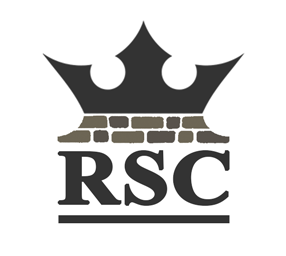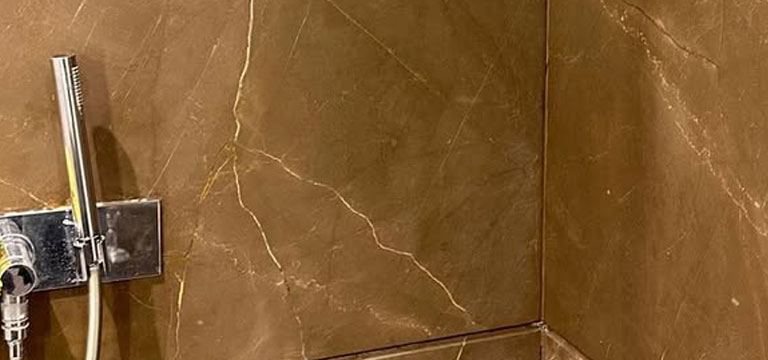When it comes to bathroom décor, including shower tiles, marble is always an excellent choice, with a timeless elegance and beauty all its own. What’s more, with the right upkeep, keeping this gorgeous natural stone looking its best is easier than you may have thought.
After all, the material has been used in building for millennia, and the Romans even made their public baths out of it.
Why do marble tiles stain
It’s worth understanding why marble stains in the first place. And key to this is appreciating its porosity. In other words, marble absorbs substances into the stone if you spill them on it. In a bathroom, moisture, soap scum and spillages of cosmetics and products from shower gel to shampoo can all have an effect on your marble.
You also need to look out for naturally present iron deposits, particularly in tiles which are light in colour, such as Calacatta Gold or Carrara varieties. Intense exposure to water can cause the iron in marble to oxidise, resulting in rust stains.
Equally, if you live in a hard-water area, the calcium deposits in water can leave calcium deposits. Mineral build-ups are common in shower tiles, but the resulting white spots are easy to shift with a specialist cleaner.
Soap scum can be another issue. This happens when ingredients from your soap react with minerals in the water, leaving a filmy layer behind. Again, you could choose a specialist cleaner that’s suitable for a natural stone.
Other culprits when it comes to marble tile staining are dyes and shampoos – you need to act swiftly to remove these blemishes. Mould is another common issue in bathrooms, although having clean tiles will stop this from growing in the first place. Addtiionally, make sure you have good ventilation and air circulation. Equally, wipe down tiles after a shower. Plus you can also try using a professional mould remover.
Etch marks appear as dull, cloudy flaws. Often, these show up if you use the wrong cleaning products, such as bleach. Buffing the stone, however, will often make your marble shine again.
Organic stains from things like food and drink are obviously less common in bathrooms, but can still occur (Although in most cases they should be pretty easy to clean up with a mild washing-up liquid).
Removing stains from marble shower tiles
Unless a stain is very old or deep, the usual principles of marble cleaning apply to shower tiles. Stick to gentle, pH-neutral or specialist cleaners or detergents. You could also try a DIY poultice based on baking soda on more stubborn marks – but call the professionals if stains linger after three attempts.
And, as ever, avoid bleach on marble as well as anything acid-based. If you are using vinegar or ammonia, do so only in the small, recommended quantities. Cloths should be soft – steer clear of abrasive scrubbers and the rough side of cleaning pads.
Finally, remember to seal your marble regularly and do frequent, superficial cleans with a soft cloth and mild cleaner.
Call in the marble experts
If this all sounds too much, we understand. Royal Stone Care specialises in marble restoration and repair in London. We can look after marble cleaning, marble chip repair and the like across commercial and domestic premises. Get in touch today to learn more, and for an initial quote.

